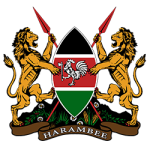Economy
Kenya is currently ranked as a middle-income country with a Gross Domestic Product in excess of USD 50 billion, becoming the second largest non-oil producing economy in Africa.
Kenya’s Economy is distinguished from most African countries by the fact that it is one of the most diversified and advanced. Kenya is the Land of unlimited possibilities. It is today ranked the 5th largest economy in Sub-Saharan Africa with a GDP in excess of US$ 89 billion. The World Economic Forum’s country competitiveness report ranks Kenya 1st in Africa in quality of human capital, availability of research, innovation and business dynamism, making it the place to be as an investor. Kenya is also ranked 61st in the ease of doing business index with an ambitious plan to reach top 50 in the next 3 years. Kenya increased investments in 2017 by 71% according to the United Nations Conference on Trade and Development (UNCTAD) due to investment incentives under the Export Processing Zones (EPZs), Special Economic Zones (SEZs) as well as the completion of the Standard Gauge Railways (SGR) that has improved logistics efficiency between the port of Mombasa, Nairobi, Naivasha and other parts of the Country. Kenya is among highest growing economies in Africa, at an average growth of about 6%, that promises investors highest returns on investment. Kenya is a member of the East Africa Community (EAC) with population of about 150 million, Common Market for Eastern and Southern Africa (COMESA) with population of about 390 million, and the Africa Continental Free Trade Area (AfCFTA) that guarantees a market of over 1.4 billion people. Kenya also has preferential market access to a population of over 500 million in EU and a population of 324 million in USA with export opportunities to over 6,000 product lines under AGOA arrangement.
The Country offers one of the best foreign investment climates in the wider East African region, being geo-strategically located at the confluence of the Great Lakes, Horn of Africa and Indian Ocean contiguity. As the gateway to nearly ten land locked countries in the region, there are several and extensive trade and investment opportunities. The Government of Kenya continues to cultivate the already existing relationships with the traditional trade partners, and welcomes partnerships with developing and developed nations who desire a deeper and more mutually beneficial relationship.
Prudent policies have helped anchor favorable conditions for strong and stable economic growth. Fiscal discipline has improved both the external and domestic debt positions of the country. A more modern framework for monetary policy has helped keep inflation expectations in check, despite adverse internal and external shocks. In addition, stronger supervisory powers have maintained financial stability, even as financial system is expanding rapidly and capital markets are opening up.
As for the tourism, the Government is shifting focus from marketing Kenya as a sun, sand and wildlife affair. New strategies such as meetings and conferences, culture, sports, medical and agro-tourism have been added on the menu to expand Kenya’s tourism market. Already, promotion of sport’s tourism, building upon the reputation of Kenya’s sporting prowess, is currently being undertaken to transform the country into a preferred destination for athletes from other countries.
Kenya’s economy is market-based, with a few state-owned infrastructure enterprises, and maintains a liberalized external trade system. The country is generally perceived as eastern and central Africa’s hub for financial, communication and transportation services. With a large pool of English speaking professional workers, high level of computer literacy, especially among the youth, and an investment friendly Government, Kenya is considered the ideal location for major corporations seeking entry into the African continent. Kenya has a well-developed social and physical infrastructure. An increasingly significant portion of Kenya’s foreign inflows is from remittances by non-resident Kenyans who work abroad.
Agriculture – products
The major agricultural products include: tea, coffee, flowers, corn, wheat, sugarcane, fruit, vegetables; dairy products, beef, pork, poultry, eggs




